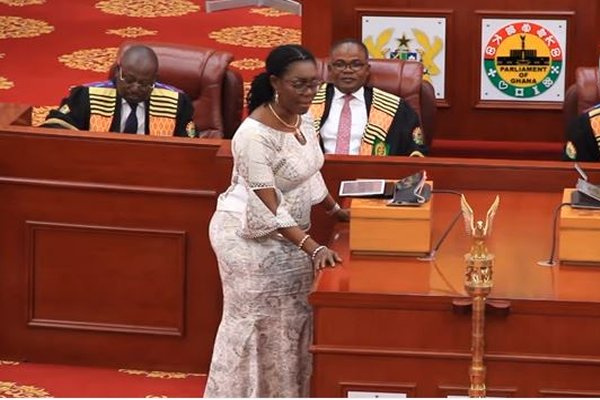
Sam George blames NCA over internet blackout
A Deputy Ranking Member on the Communications Committee of Parliament, Sam George, has criticised the National Communications Authority (NCA) for its failure to restore Ghana's internet services following a nationwide blackout caused by undersea cable cuts.
Advertisement
Ghana and other West African nations experienced disruptions in internet connectivity on Thursday, March 14, 2024. Sam George attributed Ghana's prolonged internet outage to inadequate regulatory oversight by the NCA.
He noted that while other countries affected by the cable cuts have significantly recovered, Ghana continued to face challenges due to NCA's shortcomings in regulatory enforcement.
“I hold the view that we are where we are simply because the regulator that works under the Minister, failed to do their job. The responsibility rests with the regulator. This is not about another country and force majeure. A regulator doing its job would have put in place the mechanisms and the readiness that would have allowed us to be prepared for this issue,” he stated.
Sam George who is also the Member of Parliament for Ningo-Prampram highlighted the importance of effective regulatory measures in mitigating such crises, citing Cote d'Ivoire as an example where the regulator swiftly implemented mechanisms to aid recovery.
“The cable cut happened off the coast of Cote D’Iviore. Cote D’Iviore was the most impacted country on Thursday. As we speak today, Cote D’Iviore’s recovery is ahead of Ghana simply because their regulator had put in place the right mechanisms. In the case of AirtelTigo (AT), if you ask what Cote D’Iviore is doing, they are using the Multi Operator Vectoring (MOV) operator cable and have immediately allowed all the other operators to piggyback on MOV”, he stated.
The Minister for Communications and Digitalisation, Ursula Owusu-Ekuful revealed plans to license satellite internet providers as part of efforts to reduce Ghana's reliance on undersea cables for internet connectivity.
She outlined the process for repairing the damaged undersea cables, stating that cable providers require permits from authorities in Cote d'Ivoire and Senegal before initiating repairs.
The repair process, she noted, involved retrieving the damaged cables from the seabed, splicing them aboard ships, and conducting tests to ensure proper functioning before reinstalling them.
“The initial remote investigations by all affected cable providers have given them the approximate locations where the cables have been damaged. To commence the repairs, these cable providers need permit from the authority in Cote D’Iviore and Senegal," Mrs Owusu-Ekuful explained.
She explained that the repair process could last between one and two weeks, with an additional two to three weeks required for the vessel to acquire spare parts and travel from Europe to West Africa.
This, she said, was why the NCA estimated a minimum of five weeks for full restoration of services.
Satellite service.
Ms Owusu-Ekuful highlighted that while satellite backup could serve as an alternative, it was crucial to acknowledge that it could not fully replace the lost capacity.
She noted that satellite backup for consumers was more viable though at a higher cost than terrestrial solutions.
“With regard to the use of satellite as an alternative, it is important to note that the band width of a satellite backup for network operators cannot replace the capacity that has been lost due to the outage. Satellite backup for consumers is more feasible. However, the cost is relatively much higher than the terrestrial solutions”, she stated.
In terms of immediate actions, Ms Owusu-Ekuful, said the government planned to license satellite gateway air stations, landing rights, and satellite air station networks.




